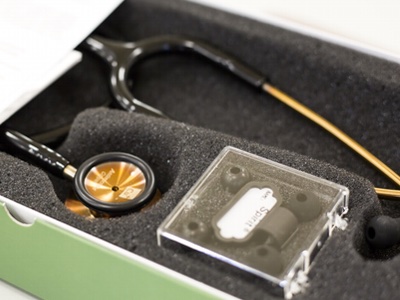Poland’s leading cancer hospital for children is using antimicrobial copper equipment to help prevent the spread of infection and protect vulnerable young patients.
The Przylądek Nadziei (Cape of Good Hope) Foundation specialises in bone marrow transplants.
It includes a children’s oncology centre led by Professor Alicja Chybicka, an influential doctor and professor of medical sciences. She is also a senator elect of the Polish Senate.
Przylądek Nadziei is using antimicrobial copper IV drip poles and medical trays manufactured by local company INMED Karczewscy.
It also has antimicrobial stethoscopes supplied by Taiwanese company Spirit Medical.

Taiwanese company Spirit Medical has supplied antimicrobial stethoscopes
The selection and sourcing of these items was facilitated by the European Copper Institute’s Polish office, (Europejski Instytut Miedzi, EIM).
‘Infections are a major worry for cancer patients, whose immune systems are weakened by chemotherapy and radiotherapy,’ said Foundation CEO Agniesza Aleksandrowicz.
'In the case of young patients, any infection during the course or therapy is life-threatening and leads to complications.
'This is why methods of infection prevention and means of reducing the spread of pathogens are important to us.
'I believe that the antimicrobial copper equipment will serve our patients well.’
EIM Director Michal Ramczykowski said the antimicrobial copper equipment is not only functional and hard-wearing, but will also help to maintain the highest standards of hygiene.
‘This centre, which treats the youngest and most vulnerable patients from across the country, deserves access to the latest technologies to protect the health and life of young patients,' he said.
Copper is a powerful antimicrobial with rapid, broad-spectrum effectiveness against bacteria and viruses, and has been shown to kill disease-causing pathogens, including influenza A, E.coli and norovirus.
It shares this benefit with copper alloys — such as brasses and bronzes — forming a family of materials collectively called ‘antimicrobial copper’.
